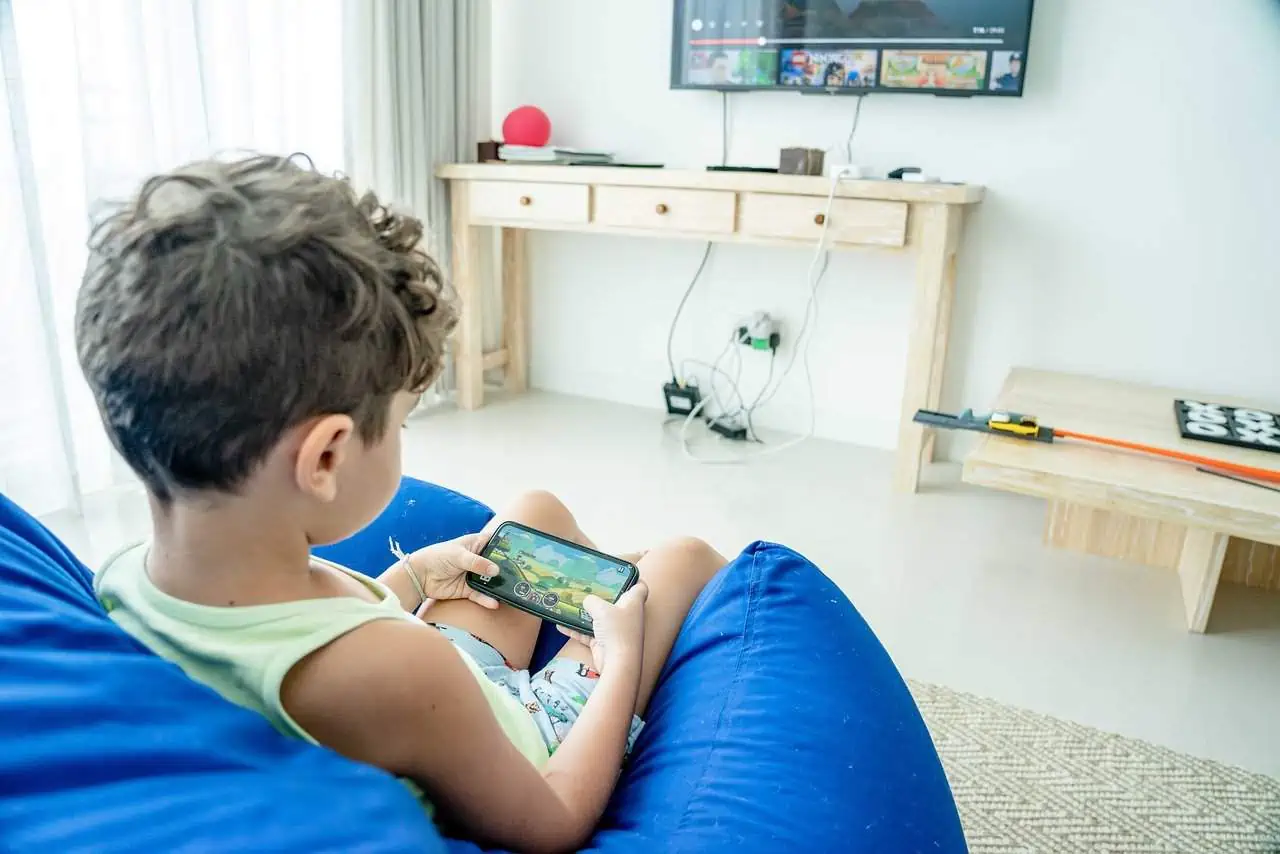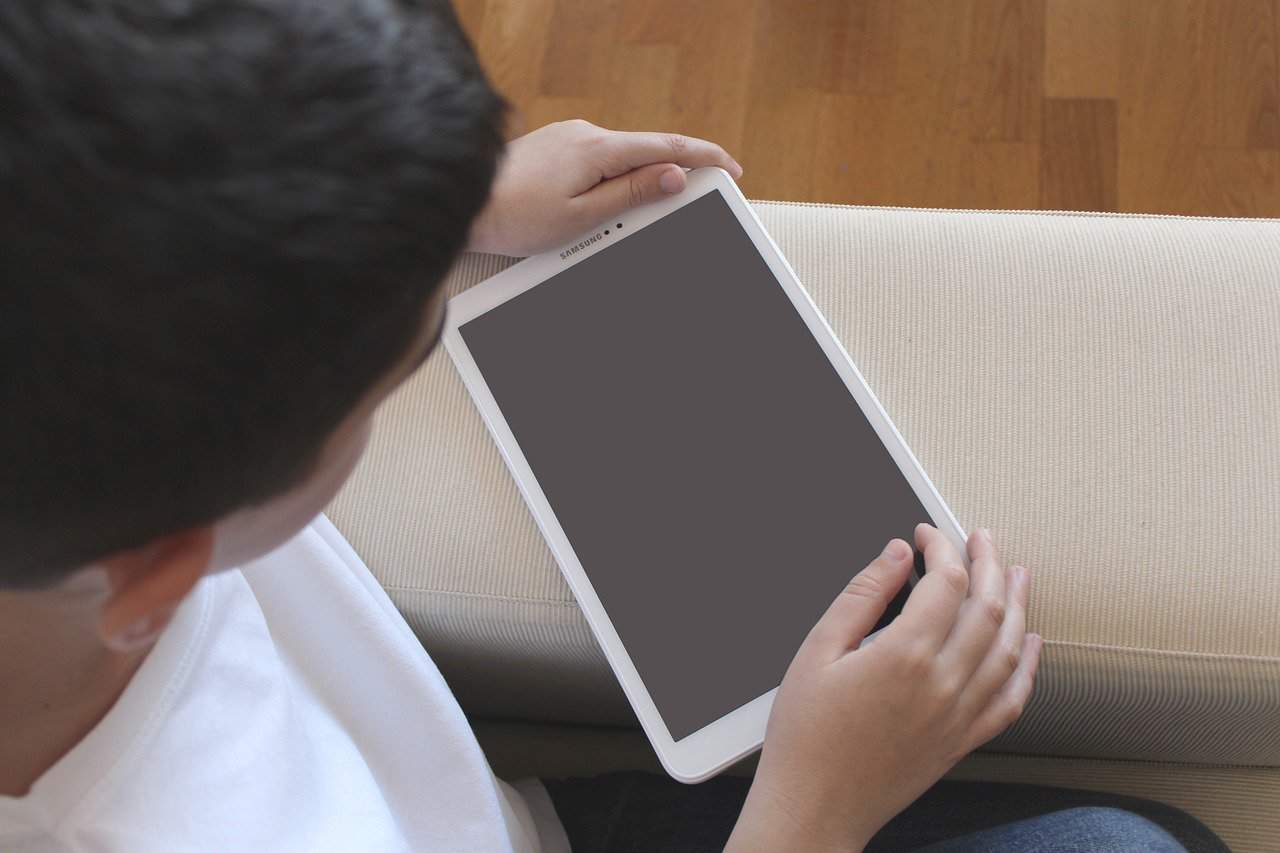Tech
Smartphones and tablets for children at Christmas? It might be a bad idea!

In recent years, several research studies have sought to clarify the negative impact of easily accessible devices. Namely smartphones and tablets, especially on children’s physical and mental well-being. A new study focusing on one-year-old children concluded that excessive screen time is associated with a delay in the development of crucial skills such as communication. Also in motor functions and the ability to solve problems.
Smartphones and tablets for children at Christmas? It might be a bad idea!
According to the study, “increased screen time for 1-year-olds was associated with developmental delays in communication and problem solving at 2 and 4 years of age.” To be clear, the study was unable to establish a definitive causal link between screen time exposure and developmental delays. However, the test results found a pattern that suggests that screen time may, at least, be one of the factors that contributes greatly to this.

The investigation, published in The Journal of the American Medical Association Pediatrics, analyzed the impact of children’s exposure to the weather on smartphones and tablets. This is in children as young as one year old. So he examined how this affects the five key domains of cognitive development. The team focused on communication, fine motor skills, gross motor skills, problem solving and social and personal skills as part of the analysis. It then used questionnaires to assess signs of developmental delays in 7,097 children who took part in the study.
The team discovered that, in children exposed to four or more hours of screen time, developmental delays affected their communication skills. Also problem-solving between the ages of two and four. In general terms, the team deduced that, at 2 years of age, delays affected communication (5.1%). Then gross motor skills (5.6%), fine motor skills (4.5%), problem solving (4.2%). Finally, social and personal skills (5.5%). Similar effects were observed at four years of age. However on a smaller scale.

Additionally, the effects appear to disappear in some areas over time.
“The screen time of children at 1 year of age was associated with the domains of fine motor skills and personal and social skills at 2 years of age. However, this association was not confirmed at 4 years of age”, states the document. The study was, however, able to confirm a dose-response relationship between exposure to screen time at one year of age and how it is associated with developmental delays at two and four years of age.
The investigation published in the magazine Cognitive Development also states that excessive use of the screen harms the child’s development. However, he adds that “programs aimed at young children must adapt to the child’s cognitive abilities and encourage co-use by parents”. Another study, carried out by experts at the University of Calgary, in Canada, concluded that children exposed to screens in the first two years of life perform worse on developmental tests when they reach the age of three.
What do other studies say?
An article published in the Journal of National Medical College states that even the most personalized educational applications and games are not enough to offer the type of learning skills that are transmitted by human tutors.

Although there is little evidence to suggest that exposure to screens causes eye problems, there has been an increase in myopia in recent years as more and more children are glued to screens indoors rather than going outside. “After studying more than 4000 children in Sydney primary and secondary schools for three years, they found that children who spent less time outdoors were at greater risk of developing myopia,” says a study published in Nature.
Then there’s the behavioral side of the risks of children’s time on smartphones and tablets. Research published in The Journal of the American Medical Association Pediatrics states that when parents use devices such as cell phones and tablets to calm their children (between the ages of 3 and 5), this can harm the development of their emotion regulation strategies. . It leads to “more intense emotional reactions.” Also more impulsiveness and less organized behavior, which makes it more difficult to be a father or mother without social media.”
How to manage screen time as a parent
Intervention and surveillance are two fundamental areas that parents of young children must pay special attention to. Therefore, for children under two years of age, the only form of exposure to screen time they should have is video calls. Parents should keep their cell phones and laptops away. This is when they interact with children and make sure they participate in real-world activities, preferably outdoors.
However, in general, pediatricians strongly advise against access to the screen for children under two years of age.
-

 Business5 months ago
Business5 months agoThis big movie with Ana de Armas and Keanu Reeves comes to AMC this weekend
-

 Entertainment5 months ago
Entertainment5 months agoNew trailer for DLC Dragon Ball Z: Kakarot “Goku’s Next Journey”
-

 Tech1 month ago
Tech1 month agothesparkshop.in:product/wireless-earbuds-bluetooth-5-0-8d-stereo-sound-hi-fi
-

 Business5 months ago
Business5 months agoWhat should you know about patio homes for sale in Scottsdale?













